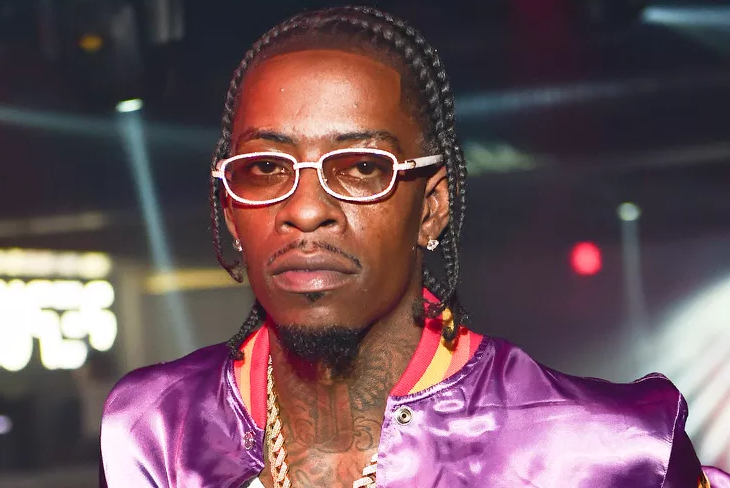Remembering the quietly revolutionary rapper, Rich Homie Quan, who passed away Thursday at age 33.
There’s a video I often revisit, posted over a decade ago by a now-defunct blog, Houston Hip-Hop Fix. In it, Rich Homie Quan wears a blue Argentina soccer jersey and multiple chains, illuminated intermittently by the flashing red lights of a police car. Sharing one microphone with the host, they frequently interrupt one another, offering apologetic shrugs. Quan runs through the typical topics of rap interviews—his upcoming album, no more free mixtapes, his music flowing through his veins, and his practice of never writing lyrics down.
About 90 seconds into the video, Quan speaks about his collaboration with Young Thug, mentioning their unique chemistry in the studio. Then, after a jump cut, he reveals they’re working on an EP together, calling themselves “the hardest duo since Outkast.” The interviewer, wide-eyed, begins to question the bold claim, but Quan cuts him off, repeating with confidence that they would live up to it.
Rich Homie Quan, born Dequantes Devontay Lamar in 1990, always had a way of blending audacity with charm and humility. He was a natural hitmaker, but his career was hindered by record label conflicts, lawsuits, and the shifting music industry of the 2010s. Like other Southern pioneers such as André 3000 and Big Boi, Quan crafted songs that mixed personal introspection with musical experimentation. He leaves behind four sons.
Growing up in Atlanta, Quan was a standout baseball player and a lover of literature. However, his life took a turn after a brief stint in burglary, which led to a 15-month prison sentence. He later told XXL that the experience opened his eyes.
In 2012, Quan dropped his first mixtape, I Go In on Every Song, a title that almost lived up to its promise. The following year, he gained national attention with his single “Type of Way,” a track that mixed a tough demeanor with vulnerable charisma. Released as Future was dominating rap radio, some listeners initially saw Quan as a variation of Future’s style. But in his verses, Quan showed his ability to blend melodic elements with traditional rap, creating a song that flowed with both playfulness and menace.

Following this breakout, Quan released more mixtapes and hits, including collaborations with Gucci Mane and Problem (now Jason Martin). His 2013 hook on YG’s “My Hitta” helped bring the West Coast rapper into the national spotlight, and in 2015, Quan went triple platinum with his single “Flex (Ooh, Ooh, Ooh),” a jubilant anthem that demonstrated his knack for turning everyday boasts into catchy, spiritual moments.
Meanwhile, his collaborator Young Thug was also ascending, and the two faced resistance from conservative critics of their music. Despite the dismissal of their styles, Quan’s declaration that their upcoming project would rival legendary duos like Clipse and Black Star seemed improbable to many. However, in September 2014, they dropped Tha Tour, Pt. 1, a project that, while not commercially successful, captured the duo’s creative energy. Though it never reached streaming platforms and didn’t produce major hits, the EP showcased two artists searching for new musical territory.
In Tha Tour, Pt. 1, Quan arguably outshines Thug in several moments, particularly in his verse on “Flava,” where he joyfully raps about his son inheriting his features, and on “Freestyle,” where he vents his frustrations about personal struggles, including child support and the desire to be a good father.
After “Flex,” Quan’s career stalled due to label issues and missed marketing opportunities, and he never worked with Young Thug again. His best solo album, 2017’s Back to the Basics, was unfortunately overshadowed by the surprise release of Kendrick Lamar’s DAMN on the same day.
In the 2019 film Uncut Gems, directed by the Safdie brothers, there’s a moment when LaKeith Stanfield’s character blasts Quan’s “Type of Way” from his car. Though the song wouldn’t be released until a year after the movie’s setting, the filmmakers chose it for its visceral effect, illustrating how, even slightly out of time, Quan’s music remained undeniably powerful.



